Liberty Foundation: Australian charity rehoming animals used in lab testing
Animals used for science and research are getting a chance to live out their natural lives in peace and serious comfort thanks to a groundbreaking new foundation.
NSW
Don't miss out on the headlines from NSW. Followed categories will be added to My News.
SHE spent her early life in a laboratory but, with two adoring owners and belly rubs on tap, Ellie the beagle-cross-french bulldog has hit the jackpot in retirement.
The seven-year-old dog, who had never lived in a house before, is among a lucky cohort of former research animals finding homes through a groundbreaking new charity.
The Liberty Foundation is Australia’s first service dedicated to rehoming the full range of animals used for science and research.
It’s also the first to have agreements in place with a number of large research establishments in NSW and plans to expand nationally.
It’s a huge achievement in an emotionally-charged space where research establishments have been wary of working with outsiders, said founder Paula Wallace.
“What we’ve done is create a charity that can basically help to ease that process and demonstrate that (rehoming) can be done successfully so that the research establishments feel comfortable that they’re using a process that works.”
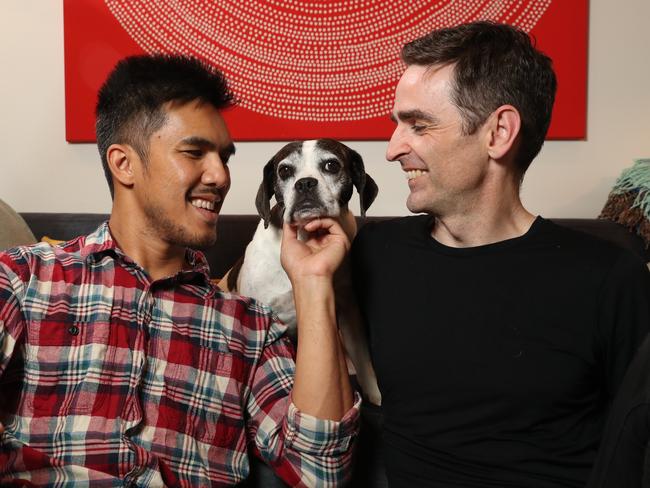
More than six million animals are used for research and scientific purposes each year in Australia and, while some institutions rehome them, many are euthanised when research ends.
Liberty works with external Animal Ethics Committees to form agreements with organisations to rehome suitable animals using a foster/adoption model.
Animals are fosterer to acclimatise to their new environment before being adopted — and almost every species is in the mix.
Mice that are genetically modified can’t leave labs but dogs, cats, guinea pigs, bunnies, fish and even farm animals can go on to retire in comfort.
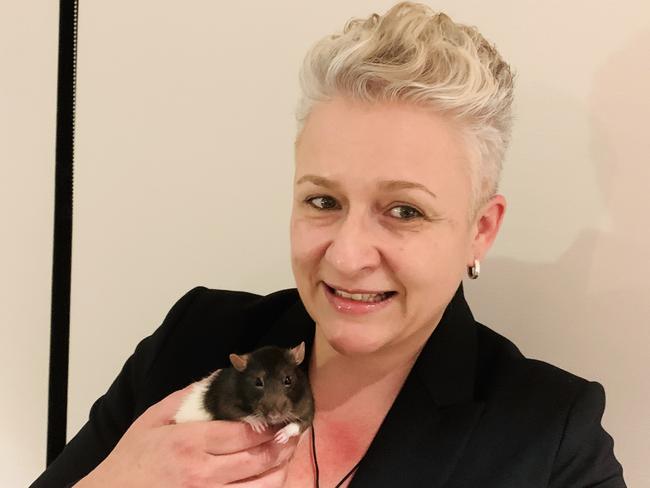
The charity officially launches this week but Ms Wallace said they had been working behind the scenes for several years, rehoming 350 animals so far, from mice to giant rabbits.
“The dogs, I’ll be honest, they’re different from dogs that you might have in your home,” she said. “They’re fairly quiet and can be a little bit timid because often they’ve been in a kennel-style environment.
“They have great contact with the research staff who look after them but they’re not treated as pets.”
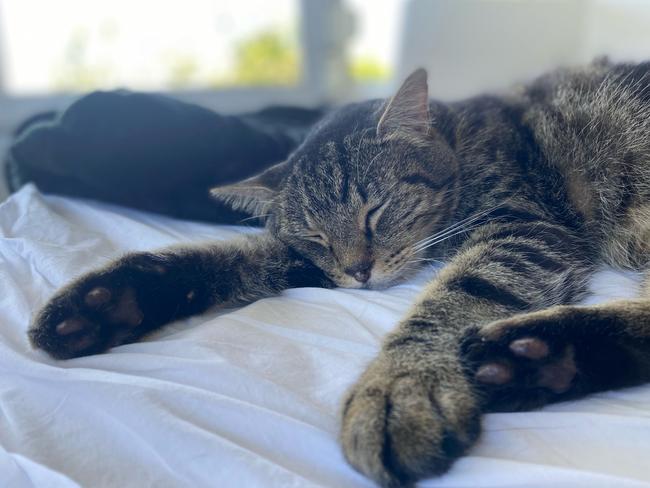
When they do find their forever homes, however, they take to it quickly.
“The creature comforts … I mean the feeding, the sleeping with their owners, you know, the lovely new food. They love it,” she said.
Ellie, who came from a testing facility in NSW, was in foster care before being adopted by solicitor Hugh McGonagle and massage therapist Jerry Gobel.
She bonded with the couple quickly and, while she had to learn to use stairs, she slid into family life beautifully, Mr McGonagle said.
“She’s beside my bed at 6am every morning, like literally jumping up and just dying to see you,” he said. “She comes and greets you, she loves to be rubbed. She’s just a lovely dog.”
Mr McGonagle said there were benefits to adopting an ex-research animal. Ellie was toilet trained, quiet and affectionate and it was impossible to tell she’d been anything but a pet.
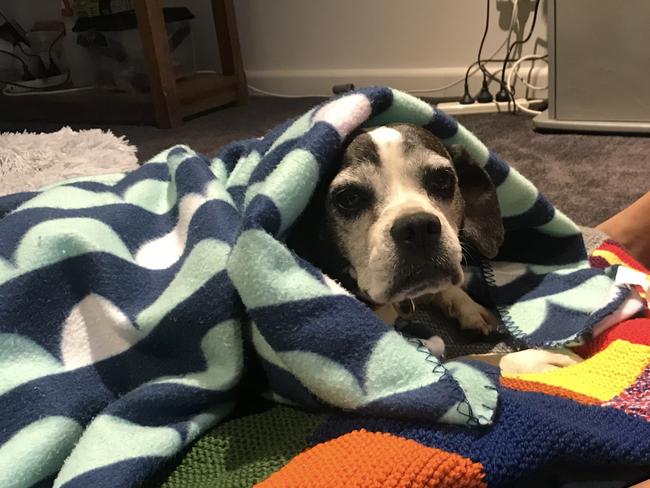
More than 300 organisations in NSW are licensed to use animals for science and research from hospitals to universities, with uses ranging from investigating human and animal diseases to increasing the efficiency of agriculture.
Malcolm France, a consultant veterinarian specialising in the care and management of animals used in research, said conditions animals were held in had vastly improved in recent decades.
“That doesn’t mean there are not significant welfare issues. So we have to be honest about that as well. But there are a lot of misconceptions,” he said.
Research has to be approved by an external Animal Ethics Committee, he said, and there was no other animal sector where there was that level of independent oversight required.
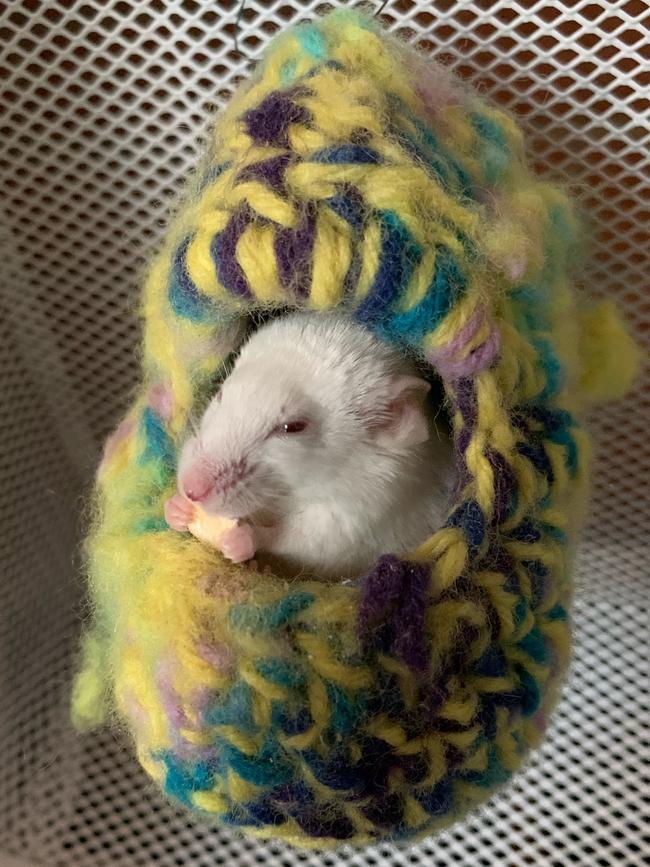
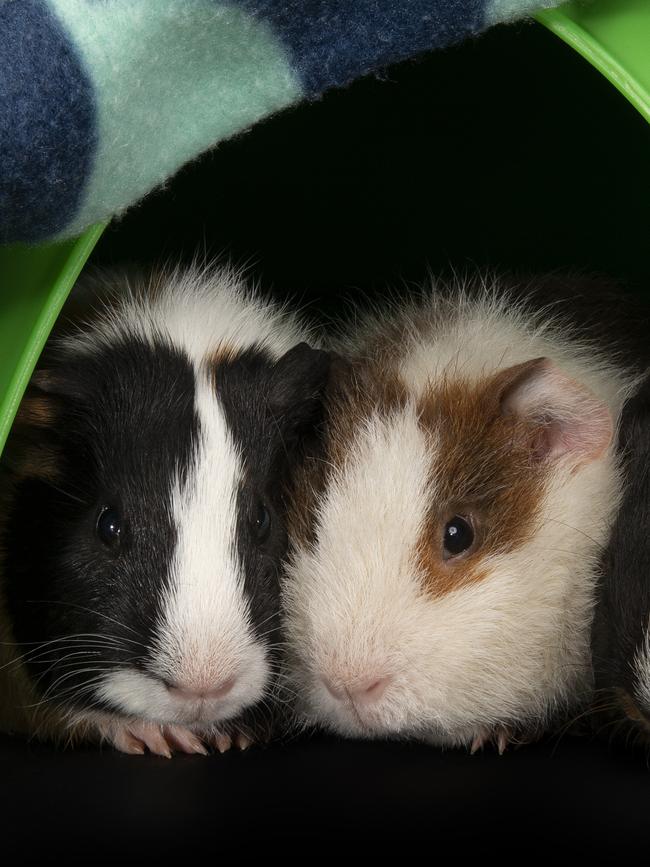
Animal research remains a heated issue in the community and many institutions had been slow to make progress in terms of rehoming, in part due to activism and “rare” extremist tactics.
”I really would like to see universities and other research institutions put aside their fears, which are based on experiences overseas and not what actually happens in Australia,” he said.
“I think there’s actually been a lot of opportunities that Australia could have taken up, but there’s been a lot of institutional nervousness about doing so.”
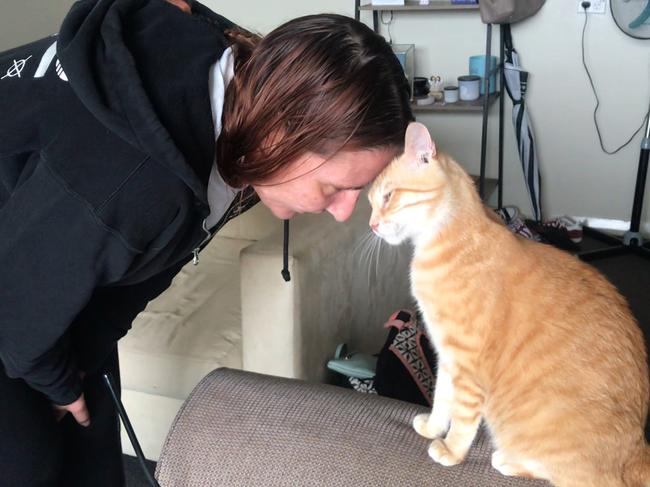
Ms Wallace said the foundation was attracting proactive research establishments that were ready to provide more sustainable outcomes for their animals.
“We’re very proud of the work that we do and the outcomes that we’re getting for animals and the research establishments that are standing with us,” she said.
The Liberty Foundation hopes to establish a sanctuary in the future with the support of donors and people joining the organisation for an annual membership fee.
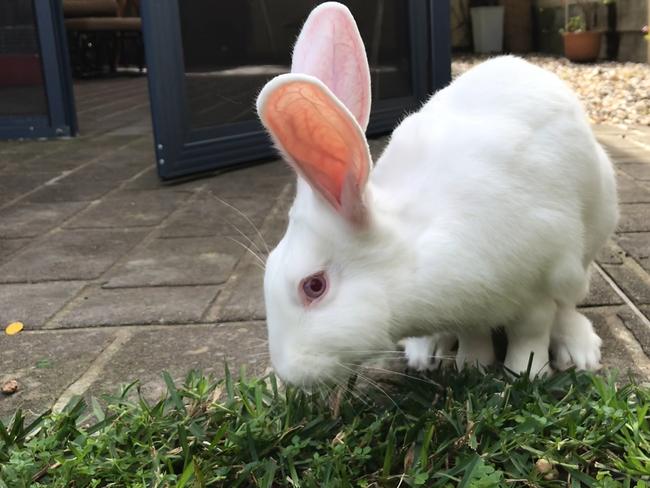
“People can go to our website and join up as a member right now. It’s a way to show your support and stay connected with us through our regular email newsletter,” Ms Wallace said.
“Animals in research are part of our community, they are not forgotten, they are not invisible, they are beautiful and they are part of us. It is up to us to provide a place for them to live out the course of the natural lives in peace.”
For details, visit the Liberty Foundation.




